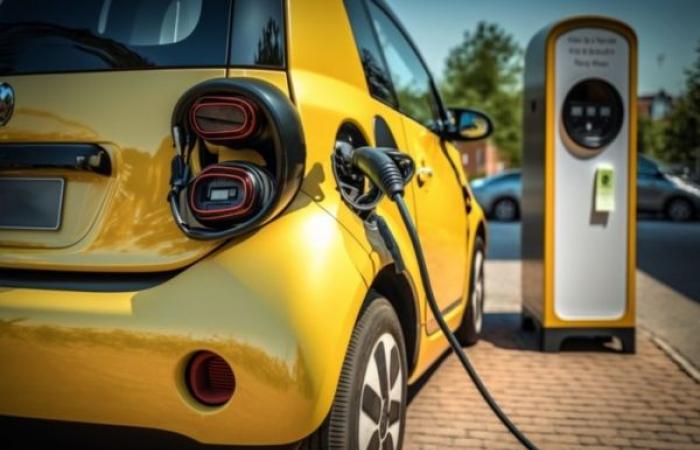Venezuela, with an economy based on fossil fuels, progresses slowly but surely towards electric mobility, with The incorporation of vehicles of this type to the National Automotive Park and the installation of recharge stations.
The director of the Engineering Research and Development Center (CIDI) of the Andrés Bello Catholic university (UCAB), Celia Herrera, told Efe that the nation with the largest proven oil reserves is “living some some slow but safe transformation processes “towards” the use of renewable energy “.
“There is a fairly strong movement of electric vehicles in the country that are not only particular, but (…) other ways of moving such as micromobility,” said Herrera.
For this International Consultant in Sustainable Urban Mobility, the “depleted resources” of the country or its “difficulties” in the generation of electricity, as well as the constant intermittences or blackouts, They do not represent obstacles that cannot be overcome through joint work between the private sector and the State.
Pioneers
Private ventures are those that have begun to take their first steps towards electric mobility.
Every day in the morning, for example, an electric van with UCAB students who, for $ 2.5, moves to the campus and then, in the afternoon, return to the same sector.
Also, in the Venezuelan capital it rolls a small white vehicle that, inside, has a screen that shows the percentage of battery that it has left and its equivalent in kilometers.
This car is part, together with another 34 units, of the “first 100 % electric taxis fleet in Venezuela”, as described Verdi, a company that offers transfers to and from the Maiquetía International Airport, which serves Caracas, as well as between Margarita Island and the Porlamar Air Terminal.
Verdi’s spokesman, Carlos García, told Efe that «There are more than 5,000 electric vehicles enrolled in Venezuela».
The entry of new cars to the market, including electric, and that “every year they arrive more” has opened, in the opinion of this renewable energy engineer, opportunities for other investments.
One of these bets is Swing Energy, born in 2022 with the aim of developing a recharge network, Garcia explained, also director of operations of this company.
At the moment, Swing Energy has installed the “first” 14 fast charging points in Venezuela, in Caracas, Maiquetía and Margarita. Garcia explained that the monthly consumption of that network of loaders “neither approaches” that of “a small automation.”
The company has the goal of becoming a “self -managed load network that generates its own energy” with solar panels.
“The idea is to develop the route to the east and to the west (from the country …) we have already determined an electric route that we have been presenting to the authorities for approval and to be able to move forward with the investment,” said the engineer.
In sum, “if this type of mobility in Venezuela is possible”, where this technology “has arrived,” said Garcia.
A “possible country”
As a result of an alliance with Swing Energy and Verdi, the UCAB opened, last March, a recharge station that is used, among others, by the van that mobilizes students.
The objective of this space is to meet a demand with a growing perspective and consolidate a sustainable campus, the administrative vice -rector of the UCAB, Gustavo García, told Efe.
“We have sought that UCAB is a showcase to show a set of projects, of initiatives of the country in ecological matters,” added Garcia, who explained that it is an area that, considering the “various structural challenges” of the country, including the “challenges of electricity generation”, needs the support of public policies.
Garcia said that, of the more than 3,000 vehicles that enter the university, about 10 are electric.
Among other initiatives, the UCAB recently replaced a bus with an electric truck for internal transfers and evaluates to use it equally for some of its work outside the campus, in order to bring the population closer to “these issues on conservation and care” of the planet, the vice -rector added.
For his part, the director of Environmental Sustainability, Joaquín Benítez, considered, in dialogue with EFE, that these advances are also feasible in Venezuela.
«One would believe no, but this is an option, a sustainable transport option and that should be promoted. I am sure we were a country with a better performance if we had more mobility options, and not only through the use of fossil fuels, ”Benítez concluded.
Read more interesting and current content:
We are one of the main news portals in Venezuela for banking, economic, financial and business issues, with more than 20 years in the market. We have been and we will continue to be pioneers in the creation of content, unpublished analysis and special reports. We have become a reference source in the country and advance step by step in Latin America.
Follow us on our Telegram, Instagram, Twitter and Facebook









